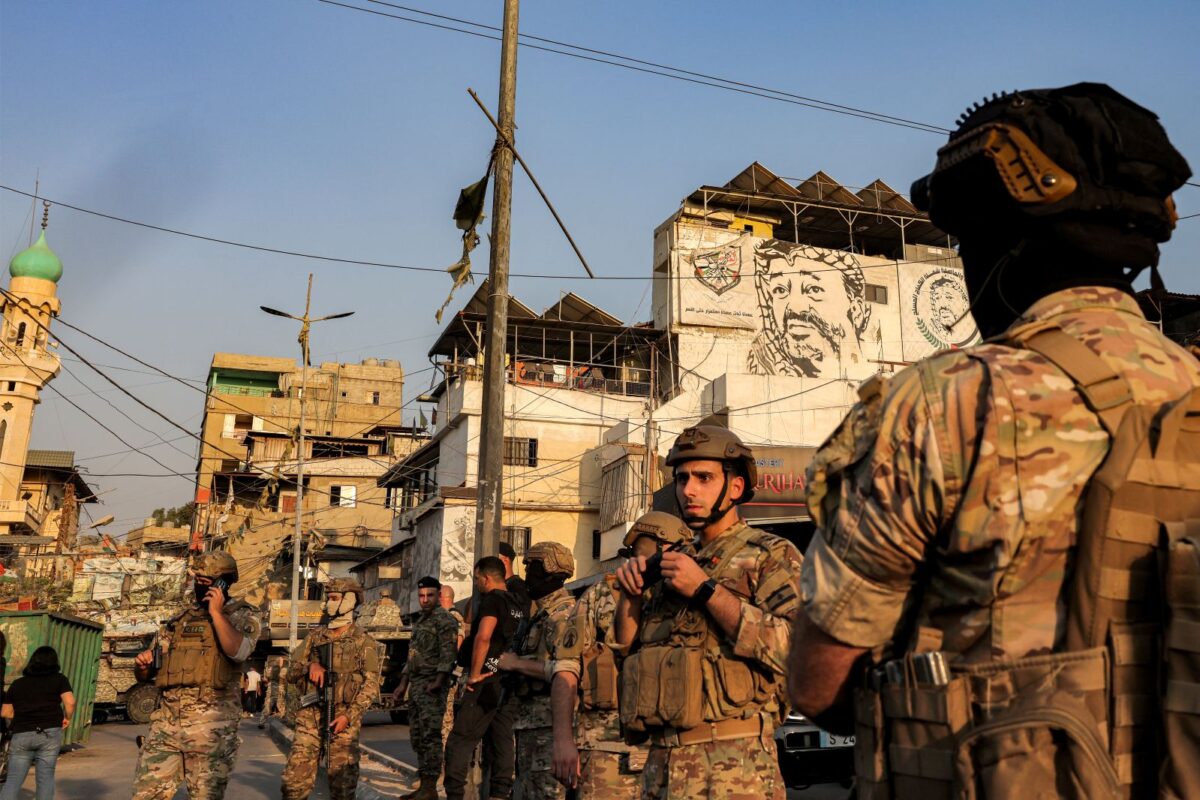
Lebanon’s heated disarmament debate is deepening political polarization, with growing fears of further instability and loss of sovereignty
The issue of disarmament has once again risen to the forefront of Lebanon’s political landscape, intensifying divisions among the country’s already polarized camps. What some see as a path toward stability and integration into the international community, others view as an existential threat to Lebanon’s defense posture and sovereignty.
Across the country, opinions remain firmly entrenched. Supporters of disarmament argue that Lebanon’s security and governance must rest solely in the hands of state institutions. Opponents insist that the presence of armed groups is essential to defend Lebanon against external threats, particularly from Israel. The result is a climate of political polarization that fosters internal conflict and divisions.
Fears of internal strife have grown, with warnings that the political impasse could lead to violent conflict. Yet some note that a return to civil war remains unlikely, largely because Lebanon’s economic collapse leaves little room for sustained confrontation. After years of financial freefall, much of the country struggles with poverty, unemployment, and failing infrastructure, making the costs of war prohibitively high for all actors involved.
At the same time, communities in Dahieh, southern Lebanon, and the Beqaa Valley—areas heavily damaged in the recent war—remain in limbo. Reconstruction aid has been slow to arrive, whether from the state or international donors. Much of the aid is being conditioned on progress toward disarmament, further fueling resentment and perceptions of external pressure.
On Monday, U.S. envoys Tom Barrack and Morgan Ortagus visited Baabda Palace for talks with President Joseph Aoun. Their statements sought to strike a conciliatory tone, underlining that Washington was not issuing threats regarding Hezbollah’s arsenal.
“We seek a better future for Lebanon and its neighbors. The issue of disarmament is a sovereign decision for the Lebanese state,” Barrack said after the meeting. He emphasized that cooperation was ongoing and that positive outcomes would benefit all sides, including Hezbollah, Lebanon, and Israel.
Barrack added that the recent Cabinet session gave him “reason for optimism,” predicting that progress in the coming weeks could mark the beginning of a roadmap to prosperity. “Our focus is on future prosperity, not fear,” he stressed.
The visit signaled renewed U.S. engagement, with Barrack highlighting that Ortagus had rejoined his team. Still, the underlying question of Hezbollah’s arms remains unresolved, with no clear consensus within Lebanon.
Parallel to these discussions, the Lebanese government has begun implementing a plan to disarm Palestinian factions in the country’s refugee camps. The campaign started in Burj al-Barajneh camp in Beirut, where the Lebanese army received weapons on Thursday in what officials described as the first step of a broader effort.
According to the prime minister’s office, the decision followed a May meeting between President Aoun and Palestinian Authority President Mahmoud Abbas. The move also reflects Lebanon’s commitments under the U.S.-backed truce reached with Israel and Hezbollah last November, which restricted arms to six official security agencies.
While government officials portrayed the weapons transfer as progress, reactions within the camps were mixed. A Fatah representative told Reuters that only “illegal weapons” acquired recently had been surrendered. Other Palestinian factions issued a statement distancing themselves from the process, saying they had no involvement. Television footage showed military vehicles inside the camp, though the exact nature of the weapons handed over could not be independently verified.
Sobhi Abu Arab, a senior Fatah commander in Burj al-Barajneh, told local media that the weapons collected and turned in were illicit arms circulating in the camp.
From the perspective of Washington, the twin tracks of dialogue with Lebanese leaders and the gradual disarmament of Palestinian groups suggest momentum in the right direction. But within Lebanon, particularly in pro-resistance circles, the perception is starkly different. For them, no real steps have been taken toward addressing their concerns, and foreign involvement is viewed with suspicion.
Lebanon’s political culture has long been shaped by sectarian balancing acts, but the current climate threatens to push groups further apart. Without resolution, the risk is not necessarily a return to open conflict, but rather a prolonged paralysis that could further weaken the country, stall reconstruction, and deepen social divides.








